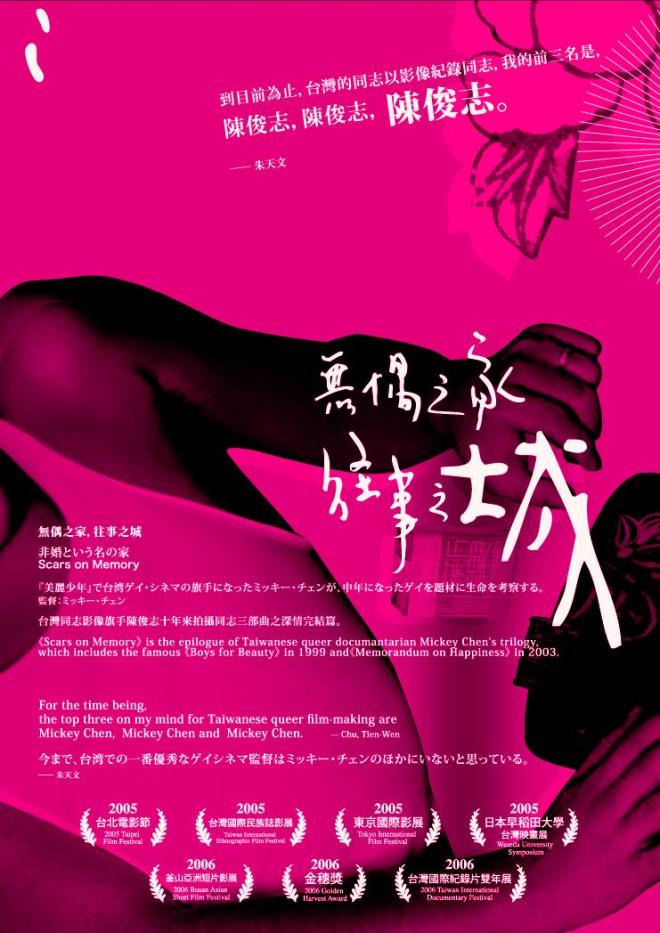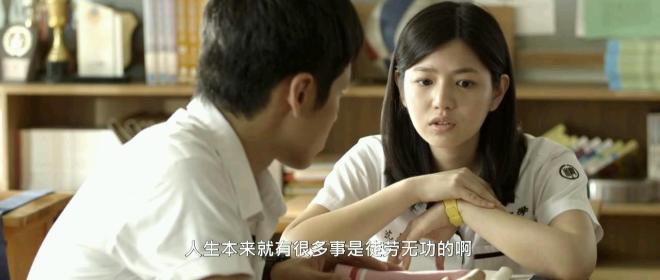The message this film seemed to want to convey was of a tragic unrealized potential of love between two high school guys because the time (1988, just after the end of Martial Law in Taiwan) was not yet right for their love to flourish. The narrative that it seems like we’re supposed to read into the film is that, out of his love for Jia-Han, Birdy pretends not to love Jia-Han back and pursues a female classmate called Banban in order to try and give Jia-Han the opportunity to live a “normal life”.

If we examine the events that actually take place in the film, however, it’s clear Jia-Han crosses boundaries on several occasions, kissing Birdy when he’s asleep. Birdy, in appearance at least, is in love with a female classmate called Banban and is increasingly uncomfortable with Jia-Han’s jealousy and attempts to intervene in his love life.
This culminates in a scene in which, under the pretext of helping Birdy shower, Jia-Han forcibly masturbates him when he’s unable to defend himself due to his injury. The narrative it seems we’re supposed to read into this is that Birdy’s erection is a manifestation of the love he has for Jia-Han that he’s sacrificing for Jia-Han’s own good. This is not a reasonable deduction to make, although it may be a major theme of Japanese porn. Birdy did not consent and repeatedly tries to fend off Jia-Han’s advances. Even if this is some (rather convoluted) act of gallantry by which Birdy sacrifices his own feelings for Jia-Han so that Jia-Han can live as a model straight citizen in society (this is a major break in character for him given his constant impulses throughout the film to defend gay people, including a younger Chi Chia-wei), no means no. From Jia-Han’s perspective at this point in the movie, Birdy could very well be a straight man who is sympathetic to the disgusting way gay characters in the movie are being treated.
The film romanticizes an obsessive jealous idea of what love is, although to some extent the Canadian priest tries to deter Jia-Han from the pursuit of this unrequited love.
The ending of the film echoes this dynamic of teasing and violation of consent, with a middle-aged Jia-Han asking Birdy to come up to his hotel room, only to be refused, but then insisting on walking to Birdy’s hotel room instead, despite the rejection being quite clear.
In my imagination of the end of the film, Jia-Han walks with Birdy to his hotel, asks to come up and is politely rejected again, roll credits. This film left me uncomfortable and to some extent I think if Jia-Han had been cast as a less jaw-droppingly handsome actor, the creepiness would have been more noticeable.
It’s definitely worth a watch, but perhaps we can read it as the unreliable narration of a stalker, rather than a romantic film.
OK, so I couldn’t let a film go by without spotting an interesting bit of Taiwanese. One phrase which stuck with me was 「坩仔」 khaⁿ-á (lit. crucible) which is a contraction of 「坩仔仙」 khaⁿ-á-sian (fairy of the crucible) which is a derogatory term for a male homosexual. You can read a debate about what the term used actually is on ptt here.



